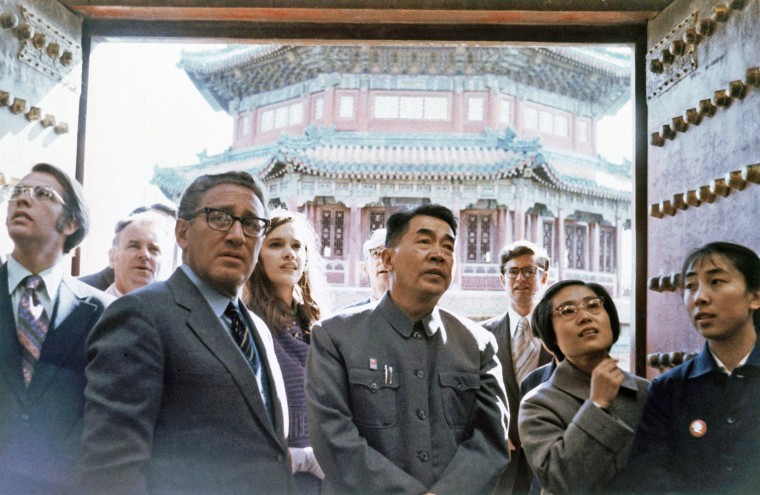Henry Kissinger, the toweringly influential former secretary of state who earned a reputation as a sagacious diplomat but drew international condemnation and accusations of war crimes for his key role in widening the American presence in Vietnam and the U.S. bombing of Cambodia, died Wednesday.
He was 100.
Kissinger, a Jewish refugee from Nazi Germany, reached the pinnacle of the American political establishment and in turn became an unlikely household name. He was secretary of state and national security adviser under two Republican presidents, Richard Nixon and Gerald Ford, and advised powerful leaders in both American political parties for decades.
He came to be seen as one of the leading diplomats and international relations intellectuals of the 20th century, an exponent of “realpolitik” who orchestrated the normalization of relations with China and helped ease tensions between the U.S. and the Soviet Union.

Kissinger won the Nobel Peace Prize for negotiating the settlement that ended the Vietnam War, jointly receiving the award with Le Duc Tho of North Vietnam, who refused the honor. Kissinger helped open diplomatic relations between the U.S. and China during the Nixon administration in the early 1970s.
But he was also one of the most singularly reviled public figures of his age, one whose legacy is inextricably bound up with bloodshed around the world. In the eyes of his critics, he was synonymous with the brutality of American power and some of the costliest foreign policy decisions in modern history.
Kissinger’s detractors denounced him for the central part he played in expanding U.S. military involvement in Vietnam, bringing a wide-scale bombing campaign to Cambodia and supporting brutal regimes in Argentina, Chile, Indonesia and Pakistan. Kissinger’s most vociferous opponents labeled him a war criminal, and some called on him to face charges at the Hague.
This is a breaking news story. Refresh for updates.
This story first appeared on NBCNews.com.